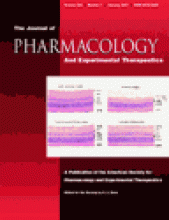Abstract
Fatty acyl-coenzyme A (CoA):estradiol acyltransferase in liver microsomes catalyzes the formation of estradiol fatty acid esters. These esters are lipophilic and have prolonged hormonal activity because they are slowly metabolized and because they slowly release estradiol. In the present study, we have shown that treatment of rats with clofibrate or gemfibrozil (peroxisome proliferators that are commonly used hypolipidemic drugs) markedly stimulate the liver microsomal esterification of estradiol. Administration of 0.15, 0.30, 0.45, or 0.60% clofibrate in an AIN-76A diet to female rats for 4 weeks stimulated fatty acyl-CoA:estradiol acyltransferase activity per milligram of microsomal protein by 4-, 8-, 14- and 16-fold, respectively, when estradiol was incubated with liver microsomes and a fatty acyl-CoA. Additional studies showed that incubation of3H-labeled estradiol with liver microsomes, ATP, and coenzyme A resulted in the formation of multiple fatty acid esters of estradiol from endogenous fatty acids in liver microsomes, and the formation of these esters was stimulated manyfold by pretreatment of rats with clofibrate. This study provides the first demonstration of a stimulatory effect of an environmental agent on the esterification of an estrogen.
Footnotes
-
Send reprint requests to: Dr. Allan H. Conney, Laboratory for Cancer Research, Department of Chemical Biology, College of Pharmacy, Rutgers, The State University of New Jersey, 164 Frelinghuysen Rd., Piscataway, NJ 08854-8020. E-mail:aconney{at}rci.rutgers.edu
-
↵1 Present address: Department of Basic Pharmaceutical Sciences, College of Pharmacy, University of South Carolina, Columbia, SC 29208.
-
↵2 William M. and Myrle W. Garbe Professor of Cancer and Leukemia Research.
-
This work was supported by unrestricted donations to the Department of Chemical Biology, College of Pharmacy, Rutgers, The State University of New Jersey.
- Abbreviations:
- CoA
- coenzyme A
- E2
- estradiol
- ACAT
- acyl-CoA:cholesterol acyltransferase
- PPAR
- peroxisome proliferator activated receptor
- Received June 28, 2000.
- Accepted September 1, 2000.
- The American Society for Pharmacology and Experimental Therapeutics
JPET articles become freely available 12 months after publication, and remain freely available for 5 years.Non-open access articles that fall outside this five year window are available only to institutional subscribers and current ASPET members, or through the article purchase feature at the bottom of the page.
|






